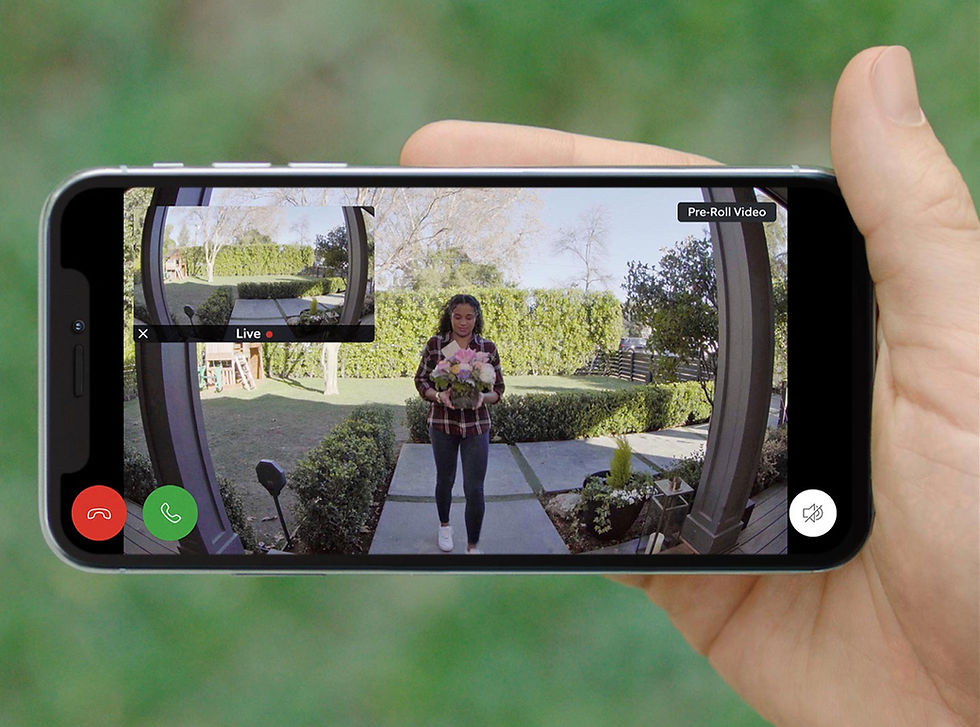The Internet of Things and How Business Owners Can Utilise it
- Bianca Mammone
- May 1, 2023
- 2 min read
The Internet of Things (IoT) describes the network of smart devices that are embedded with sensors, software and similar technologies to collect and exchange data via the internet. These “things” can be common household devices or highly developed tools for industrial use. For example; motion sensors, Amazon Alexa, Google Home, red-light cameras, heart monitors and phones are all smart devices that collect data.
Big Data refers to huge data sets which can be analysed to depict consumer patterns and trends, among other things. Large companies such as Google (now Alphabet) and Facebook (now Meta) use machine learning, AKA algorithms, to analyse big data and create predictive algorithms about what people will do next.

Source: Ring Video Doorbell 4 on Amazon
THE BUSINESS PERSPECTIVE
Business owners and marketers know the importance of tracking and analysing data. Tracking key metrics can help you identify bottlenecks, areas of opportunity, and threats to your business. It can also help you map out the consumer buying journey and analyse that path to improve your customer experience.
From a business perspective; the more quality, structured data, the better. There are tons of tools available to small businesses who wish to compile and structure meaningful data. The specific tools depend on what you are wanting to analyse, however some great free tools for e-commerce stores are Google Analytics, Meta Business Suite and Google Trends, along with in-built analytics from paid tools such as Google Ads, Shopify, Klaviyo and Later. You can also opt for additional paid tools for data analysis such as Buffer. We use these tools with our own clients to provide a comprehensive outlook on how the business is tracking, including sales growth, brand awareness, potential bottlenecks, campaign success and more.

Source: Buffer
THE CONSUMER PERSPECTIVE
Whilst there are many benefits from a consumer perspective, such as ease and convenience, big data and the IoT can also be unsettling. The truth is, the more data obtained, and the more machines learn about us, the better they can predict what we are going to do next. Sometimes even before we know what we’re going to do next. This raises obvious ethical concerns. Is it fair for businesses to know when we are most vulnerable?
In the end, the IoT is becoming increasingly intertwined with our lives. An inability or unwillingness to accept this often means we will get left behind. The question is not whether or not it will happen. The questions we need to be asking are: How can we, as consumers, protect ourselves from unfavourable outcomes? How can we, as business owners, adopt an ethical approach to all of this? What policies can we agree upon as a society to create a mutually beneficial and fair future?
We’d love to hear your thoughts in the comments below.
Comments